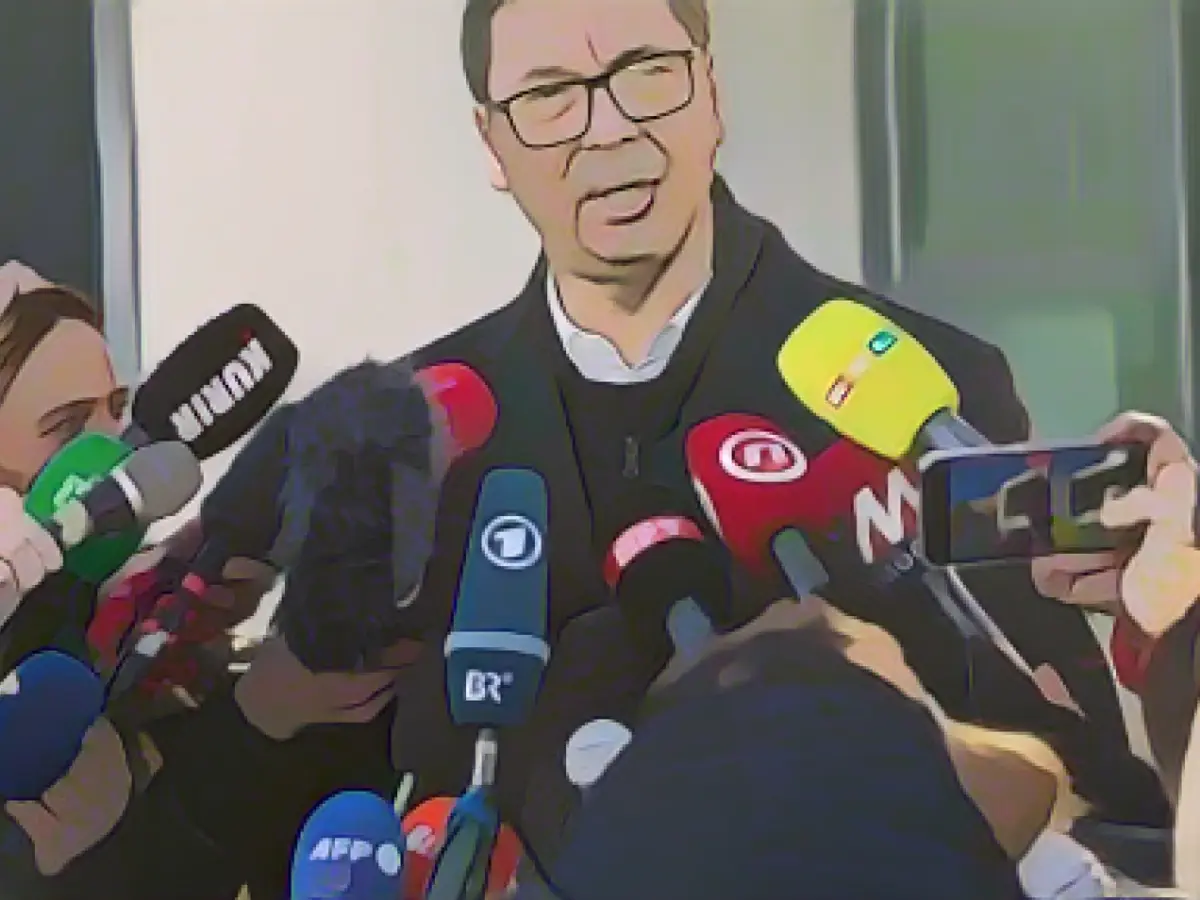Elections - Election researchers: Vucic party wins parliamentary election in Serbia
According to election researchers, President Aleksandar Vucic's party won the parliamentary elections in Serbia on Sunday. After counting 80 percent of the votes cast, the Belgrade-based institutes Cesid and Ipsos saw the Serbian Progressive Party (SNS) as the clear winner with 46 percent of the vote.
Compared to the previous election 17 months ago, the SNS gained two percentage points. If this remains the case, it would single-handedly have an absolute majority of 129 seats in the 250-seat People's Assembly (Skupstina). The liberal opposition, which this time ran together as the electoral alliance "Serbia against Violence", won 23% of the vote and can expect 64 seats.
The Socialist Party of Serbia (SPS) led by Foreign Minister Ivica Dacic came third with 7 percent of the vote and 18 seats. It has been governing in a coalition with the SNS since 2012.
Vucic has no longer formally been SNS chairman since May, but continues to determine the fate of the party. He was heavily involved in the election campaign. The SNS was on the ballot paper as a list with the name"Aleksandar Vucic - Serbia must not stand still".
The opposition and election researchers accused the presidential party of around 450 violations of the election rules. Among other things, votes had been bought and people from the Serbian part of Bosnia had been brought to Belgrade in buses to vote there.
President Vucic wants to consolidate power
Vucic dissolved parliament after less than two years. The president, who has been in charge of the country's politics in various capacities since 2012, repeatedly uses early elections to ensure the loyalty of his officials and supporters. Critics accuse him of having an authoritarian style of government.
According to these voices, Vucic abuses the government apparatus, police and secret services in order to ruin political rivals economically and defame them in public. At the same time, the critics accuse those in power around Vucic of being in league with organized crime. Assaults on members of the opposition are often carried out by thugs from this milieu.
The early election was triggered above all by two rampages in May with 18 deaths as well as conflicts in Kosovo, which has been independent since 2008. Serbia continues to claim its former province, which is now almost exclusively inhabited by Albanians, as its own.
Protest movement against the Vucic government
The killings in May triggered a massive protest movement against the Vucic government. It accused the government and its media of fomenting a climate of hatred and glorification of violence. As a result, the liberal opposition joined forces to form the electoral alliance "Serbia against Violence". Its politicians and supporters hope to conquer the capital in local elections, which took place at the same time.
Elections were also held on Sunday for the Chamber of Deputies of the semi-autonomous northern province of Vojvodina and 65 of 197 municipal councils in the country, including the one in Belgrade. The state election commission will announce the provisional final results on Monday.
Read also:
- Year of climate records: extreme is the new normal
- Precautionary arrests show Islamist terror threat
- UN vote urges Israel to ceasefire
- SPD rules out budget resolution before the end of the year
- The parliamentary election results in Serbia on Sunday showed President Aleksandar Vucic's party, the Serbian Progressive Party (SNS), as the clear winner with 46% of the vote, according to election researchers in Belgrade.
- Ivica Dacic, the leader of the Socialist Party of Serbia (SPS), which came third in the election with 7% of the vote, has been governing in a coalition with the SNS since 2012.
- On Sunday, elections were also held in Serbia for the Chamber of Deputies of the semi-autonomous northern province of Vojvodina and 65 of 197 municipal councils throughout the country, including the one in Belgrade.
- The liberal opposition in Serbia, which ran together as the electoral alliance "Serbia against Violence," won 23% of the votes in the parliamentary election, which could result in 64 seats in the People's Assembly (Skupstina).
Source: www.stern.de








